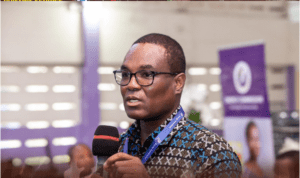The Energy Commission has trained about 150 officers of the Ghana Prisons Service and their spouses on energy efficiency and conservation in Accra.
The workshop fits into the Commission’s goal of assisting consumers in reducing costs through conscientious appliance selection and efficient use of energy to prevent wasteful consumption.
Speaking to the media, deputy Director for Energy Efficiency Regulations at the Commission, Kennedy Amankwah, explained the benefits associated with energy efficiency and conservation, citing cost reduction on the part of consumers and government and ultimately, protecting the environment.

He highlighted how individual behaviours related to utilising energy-efficient equipment affect energy conservation.
“When it comes to reducing energy consumption and energy bills, there are two key measures – thus energy efficiency and energy conservation. The efficiency is about advancement in technology that presents us with appliances or gadgets that consume less. While energy conservation has to do with individuals’ energy use. Though the appliances these people use consume less, their behaviour of leaving them on when not in use can cost them,” he said.
“As we are all aware, we use electricity, and the more we consume it, the more we pay, so if you are able to find a way of reducing your consumption, you also reduce your electricity bills,” he added.
He also advocated for the prioritisation of renewable energy to combat climate change.

For his part, the Public Relations Officer at the Commission, Samuel Frimpong, reiterated that if energy consumption is controlled, it will go a long way to reduce government’s expenditure on energy generation and distribution.
“Government spends a lot of money to generate, transmit and distribute the energy or power to consumers, however if the demand for energy is reduced by way of efficient use, government will save a lot of money that can be channeled to other sectors,” he said.
He also urged consumers to get themselves abreast with energy efficiency standards and regulations on electrical appliances and purchase equipment that meet these standards.

The training, according to an officer with the Public Relations Unit of the Ghana Prisons Service, deputy Superintendent Samuel Kofi Opoku, has equipped officers with adequate information on how to efficiently manage energy consumption at their various homes and offices.
He took the opportunity to appeal to the Energy Commission to extend the training to other groups, especially in the face of rising electricity tariffs.
The training began in 2018 and has so far, trained personnel of the Armed Forces, Police Service and National Fire Service.










